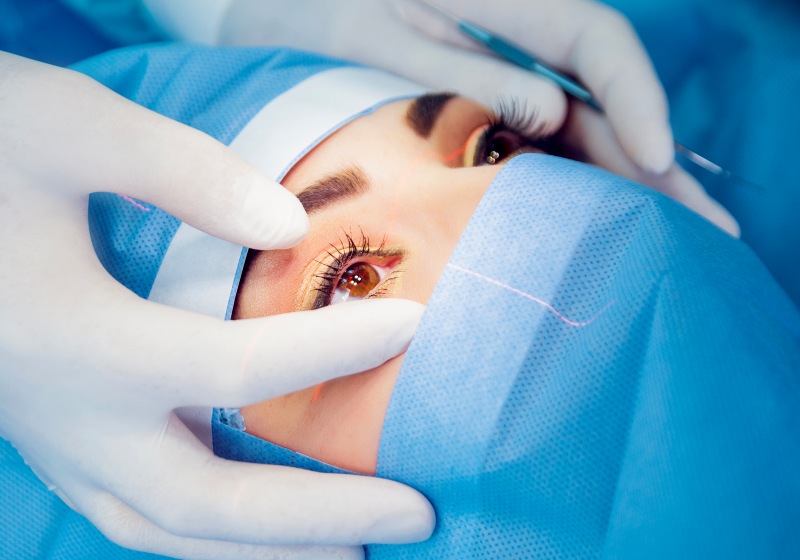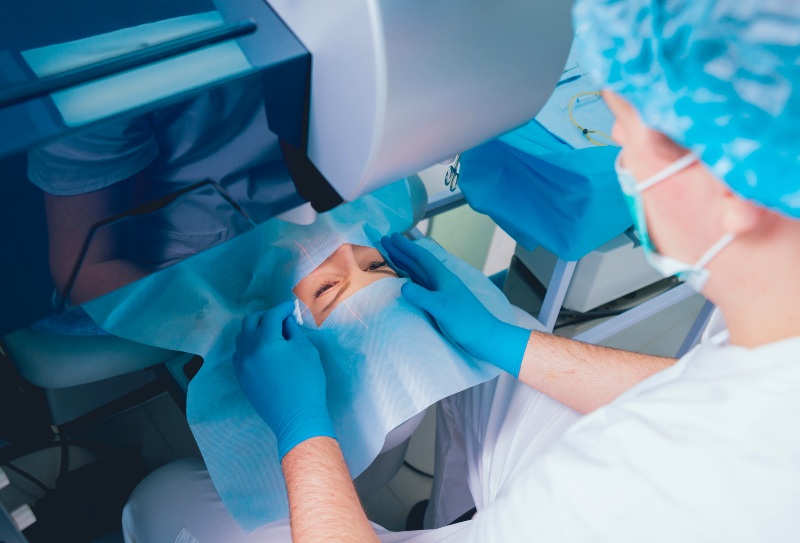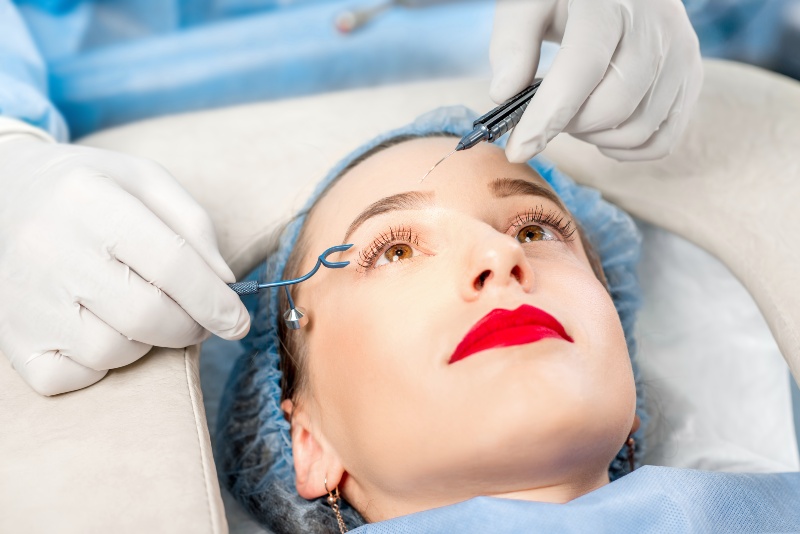7 Benefits Of Glaucoma Surgery That May Change Your Perspective
Glaucoma is one of the top leading causes of blindness and is common among people over 40. Thankfully, due to glaucoma surgery, the chances of losing your eyesight have decreased.
Read on to know more about this treatment as well as its potential risks and benefits.
RELATED: How Your Body Changes When You Turn 50
What You Need to Know About Glaucoma Surgery

Glaucoma Treatments
Glaucoma is a condition wherein there's excessive fluid pressure in your eye. This causes your optic nerve to deteriorate. This nerve is responsible to transmit visual images from your retina to your brain.
The pressure on your optic nerve also generates a fluid buildup that clogs your eye drainage. This results in damage to your retina and eventually, blindness.
There are various ways to treat glaucoma. These include:
- Eye drops: Normally, eye drops can treat the most common glaucoma type called primary open-angle glaucoma.
- Glaucoma surgery: This entails laser treatment or making an incision in your eye to lessen the pressure.
Every glaucoma operation has its own advantages and disadvantages. Consult your ophthalmologist to discuss the risks and benefits of each treatment. With this, your doctor can recommend the best option based on the glaucoma type you have.
However, these treatments can't get your normal eyesight back once you've already lost your vision. Instead, they can help prevent your eyesight from getting worse.
Most likely, there'll be follow-up checkups that you'll have to attend. These will ensure that your eyes are regularly observed and that the treatment is effective.
Risks of Glaucoma Surgery

After undergoing glaucoma surgery, you might have to keep away from doing activities for two to four weeks. You need to avoid lifting heavy objects and stressing your eye, such as driving and reading, during your recovery period.
Some people enjoy the long-term benefits of glaucoma operation. On the other hand, some would need to undergo surgery again.
Additionally, as with any surgery, there are risks involved, and it's possible that you experience side effects.
1. Blurred Vision

After your glaucoma surgery, your eyesight may be disrupted or become blurred. This can lead to poor vision that can last from few days to six weeks.
The fluid in your eye may also gather at the back of your retina after the surgery. With this, you may notice a shadow in your side or peripheral vision.
In the event that you lose your vision, you have to tell your doctor immediately. This might be a result of complications from your glaucoma surgery.
2. Minor Discomfort

You might experience irritation, swelling, and redness in your eye that can last for a few days. In addition, your eyes may be watery and tear up more than usual. The stitches may also lead to an itchy feeling.
If you experience severe pain, communicate with your ophthalmologist straight away.
3. Bleeding

Any treatment can possibly lead to bleeding inside your eye. This is due to the very low eye pressure.
Once you notice that your eye is bleeding, consult your doctor as it can be a serious complication.
4. Infection

Ophthalmologists provide antibiotics prior to, during, and post-surgery. Throughout the process, surgeons perform meticulous methods as well to prevent infection.
However, an eye infection is still possible to occur which can damage your eyesight. Observe your vision as complications can happen even years after your glaucoma surgery.
5. Scarring

Glaucoma surgery may be unsuccessful over time since the eye has scarring tendencies. If there's severe scarring, the treatment may fail to attain reduced eye pressure. If this happens, you may need to repeat the operation.
6. Formation of Cataract

Cataracts are more likely to develop after glaucoma surgery. Like glaucoma, a cataract is also a serious eye disorder that leads to blurry eyesight or worse, vision loss.
RELATED: 13 Dermatologist Approved Retinol Eye Cream Brands
Benefits of Glaucoma Surgery

Glaucoma surgery can help decrease eye pressure in cases wherein the medication isn't effective. This treatment can prevent vision loss and slow down the development of glaucoma.
Additionally, glaucoma surgery typically lasts for an hour or two, and you may already go home after the operation.
1. Laser Surgery

If your optic nerve isn't severely damaged, your ophthalmologist might advise laser surgery before doing an incisional procedure. This treatment uses a laser beam to treat your eye's drainage system. It can help improve the flow of the clear fluid out of your eye.
2. Trabeculectomy
This is a highly successful and the most common type of glaucoma surgery. In this treatment, the surgeon makes a small opening in the white area of your eye, under the eyelid. This is to easily drain out the extra fluid to decrease eye pressure.
3. Drainage Implant Surgery
In situations where trabeculectomy would be ineffective, a doctor might place a small tube or shunt inside your eye instead. This tiny tube helps improve the drainage of extra fluid out of your eye. In this type of glaucoma surgery, there's less chance of tissue scarring.
4. Trabectome Surgery

In this glaucoma operation, a surgeon utilizes a Trabectome. It's an instrument that uses an electric current to cut a small part of the drainage tubes in your eyes. It also relieves fluid buildup and eye pressure.
Compared with trabeculectomy and drainage implant surgeries, this procedure isn't as invasive.
5. Canaloplasty
This newer surgical alternative to treat glaucoma uses a microcatheter to expand the drainage canal in your eye. This is a safer option for patients who wear contact lenses and are at a higher risk for bleeding or infections.
In addition, this can also be done to those who had problems in their other eye due to trabeculectomy.
6. Minimally Invasive Glaucoma Surgery
If your glaucoma is mild, your ophthalmologist might recommend this new procedure. Just like any other glaucoma surgery, this treatment also reduces eye pressure. This operation is safer, and you can even recover faster.
If eye drops aren't successful in alleviating your eye condition, you may undergo glaucoma surgery. Watch this video by USC Roski Eye Institute as one of their patients narrate her experience with this treatment:
Glaucoma surgery can put a stop to your vision loss and can even enhance your eyesight. Protect your eyes by understanding the risks and benefits of this treatment and by consulting your ophthalmologist.
Have you undergone glaucoma surgery? How was your experience? Please share your thoughts with us in the comment section below!
Up Next:
- How To Prevent and Reduce Under Eye Wrinkles
- 17 Promising Anti Aging Eye Cream for Your 50s
- Look Younger at 50 | 12 Scientifically Proven Secrets on Looking Younger at 50
Please stay connected with us on Facebook, Twitter, Instagram, and Pinterest, and make sure to join our community of healthy living and minded people here.
Trending
Get Updates
SIGN UP FOR OUR NEWSLETTER TODAY

Tongue Color | 7 Scary Tongue Color Meanings

10 Erectile Dysfunction Exercises to Keep Your Manhood Healthy

Related

Tongue Color | 7 Scary Tongue Color Meanings

